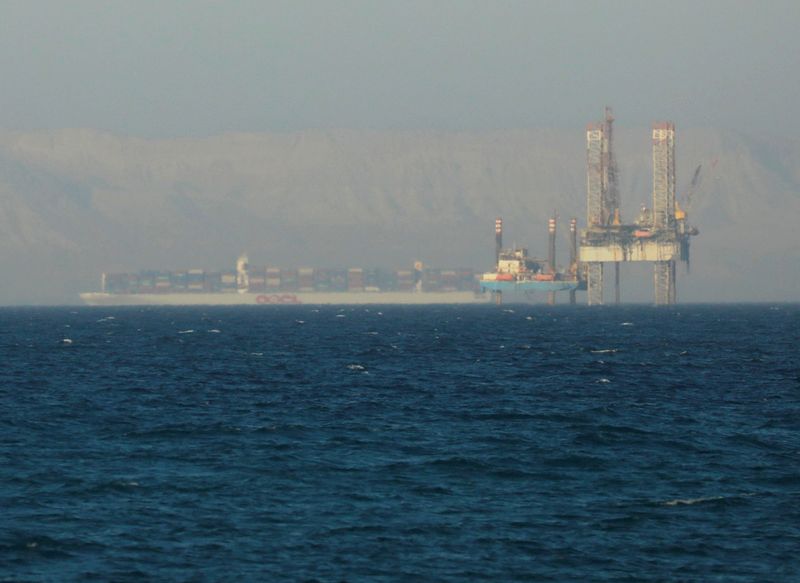By Lisa Baertlein
LOS ANGELES (Reuters) -Ocean freight rates are surging after a missile attack and attempted hijacking of a Maersk ship this weekend prompted carriers to suspend plans to restart transits through the Red Sea, a key artery to the vital Suez Canal trade route.
Yemen-based Houthi militants have been attacking high-value cargo vessels in the Red Sea since November in a show of support for Palestinian Islamist group Hamas fighting Israel in Gaza. It has forced ships to reroute around the southern tip of Africa, driving up the cost for vessels for the longer voyage, though rates are still far below pandemic levels reached in 2021.
Egypt's Suez Canal connects the Red Sea to the Mediterranean Sea and is the fastest way to ship fuel, food and consumer goods from Asia and the Middle East to Europe. Shippers use the route to ferry as much as one-third of all global container cargo, including toys, tennis shoes, furniture and frozen food.
The attacks are already delaying delivery of products destined for numerous companies, as the Suez route is used by the likes of IKEA, Walmart (NYSE:WMT) and Amazon (NASDAQ:AMZN).
Asia-to-North Europe rates more than doubled to above $4,000 per 40-foot container this week, with Asia-to-Mediterranean prices climbing to $5,175, according to Freightos, a booking and payments platform for international freight.
Some carriers have announced rates above $6,000 per 40-foot container for Mediterranean shipments starting mid-month, and surcharges of $500 to as much as $2,700 per container could make all-in prices even higher, Judah Levine, Freightos' head of research, said in an email.
As of Wednesday, hundreds of container ships and other vessels have been rerouted around Africa's southern Cape of Good Hope to avoid the attacks - adding anywhere from 7 to 20 days to their voyages.
Those so-called, one-time "spot" rates are roughly double the rates for freight that moves on the contract market, logistics executives said.
"People desperate to get space (on ships), are going to pay," said Christian Sur, executive vice president for ocean freight at Unique Logistics.
Rates to less-affected North American ports also are moving higher.
Up to 30% of cargo that arrives at the U.S. East Coast travels through the Suez Canal. Logistics executives expect some of those imports to be diverted to the U.S. West Coast - which is a straight shot across the Pacific Ocean from China and other Asian exporters.

Rates for shipments from Asia to North America's East Coast climbed 55% to $3,900 per 40-foot container. West Coast prices jumped 63% to more than $2,700 ahead of expected cargo diversions to avoid Red Sea-related issues, Levine said.
While rates have spiked, they remain far below 2021's pandemic-fueled record highs of $14,000 per 40-foot container for Asia to North Europe and the Mediterranean and $22,000 for Asia to North America's East Coast.